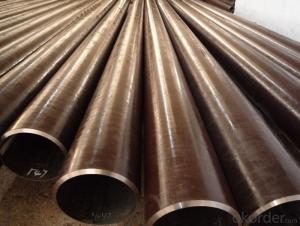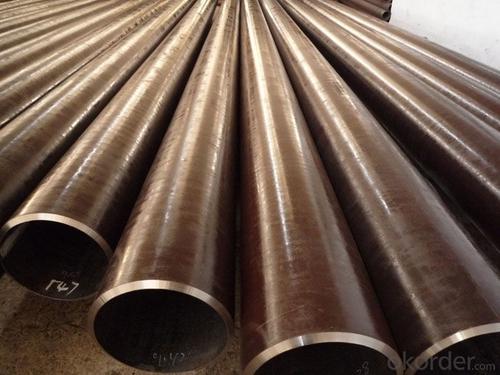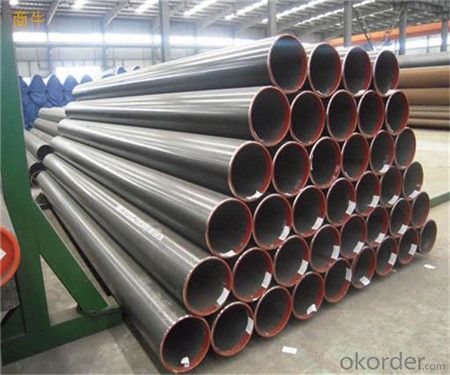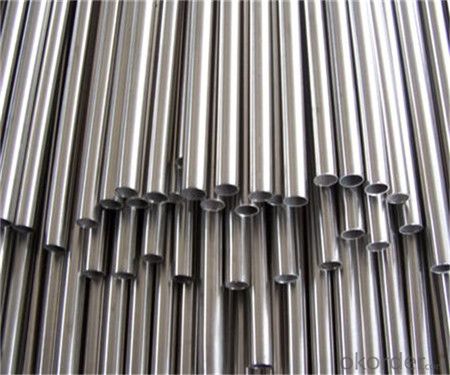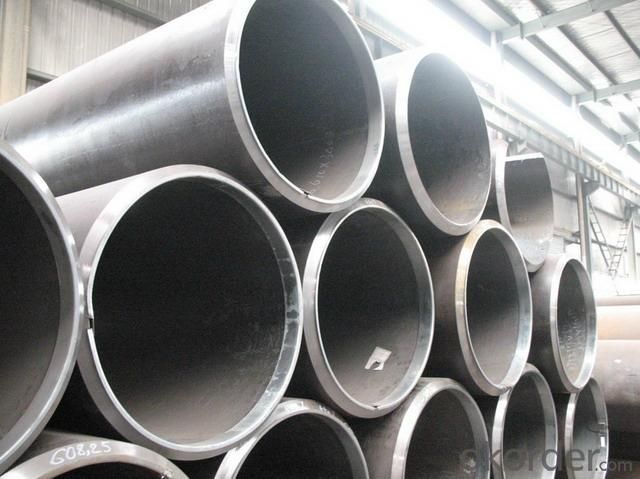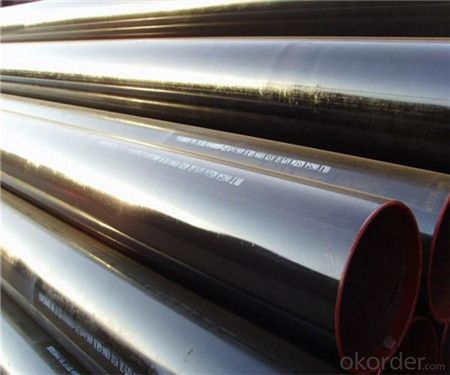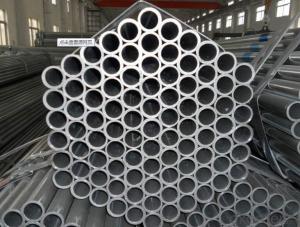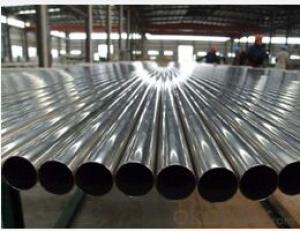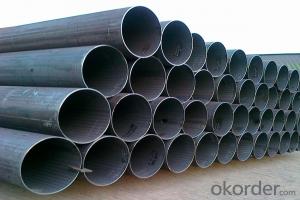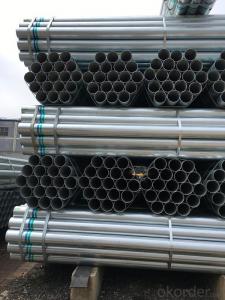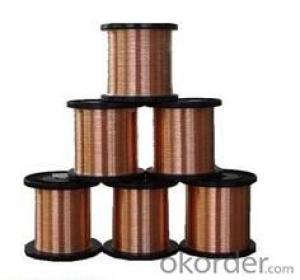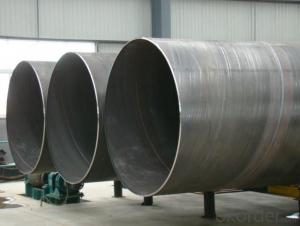Line Welded Pipe for Sour service
- Loading Port:
- China Main Port
- Payment Terms:
- TT or LC
- Min Order Qty:
- 30 m.t.
- Supply Capability:
- 12000 m.t./month
OKorder Service Pledge
OKorder Financial Service
You Might Also Like
1、Structure of Line pipe for sour service
The line pipe for sour service (Psl 2), which is suitable for the use in sour environment condition. The material is selected strictly according to NACE MR01-75, which is fine grain fully killed clean steel made by basic oxygen steel-making or electric furnace. The content of element P and S are very lower so that it has not only high resistance features against H2S and CO2, but also has better performance of impact energy. The test results of SSC according to NACE TM0177-2005 and HIC according to NACE TM0284-2003 have reached the requirement of API 5L (44th edition) after the inspection of authorities.
Mechanical properties
2、Main Features of for sour service
• High manufacturing accuracy
• High strength
• Small inertia resistance
• Strong heat dissipation ability
• Good visual effect
• Reasonable price
3、Seamless Pipe for sour service Specification:
Standard | GB, DIN, ASTM ASTM A106-2006, ASTM A53-2007 |
Grade | 10#-45#, 16Mn 10#, 20#, 45#, 16Mn |
Thickness | 8 - 33 mm |
Section Shape | Round |
Outer Diameter | 133 - 219 mm |
Place of Origin | Shandong, China (Mainland) |
Secondary Or Not | Non-secondary |
Application | Hydraulic Pipe |
Technique | Cold Drawn |
Certification | API |
Surface Treatment | factory state or painted black |
Special Pipe | API Pipe |
Alloy Or Not | Non-alloy |
Length | 5-12M |
Outer Diameter | 21.3-610mm |
Grade | 20#, 45#, Q345, API J55, API K55, API L80, API N80, API P110, A53B |
Standard | ASME, ASTM |
4、Packaging & Delivery
Packaging Details: | seaworthy package,bundles wrapped with strong steel strip |
Delivery Detail: | 15-30days after received 30%TT |
5、FAQ of for sour service:
①How is the quality of your products?
Our products are manufactured strictly according to national and internaional standard, and we take a test
on every pipe before delivered out. If you want see our quality certifications and all kinds of testing report, please just ask us for it.
Guaranteed: If products’ quality don’t accord to discription as we give or the promise before you place order, we promise 100% refund.
②How about price?
Yes, we are factory and be able to give you lowest price below market one, and we have a policy that “ for saving time and absolutely honest business attitude, we quote as lowest as possible for any customer, and discount can be given according to quantity”,if you like bargain and factory price is not low enough as you think, just don’t waste your time.Please trust the quotation we would give you, it is professional one.
③Why should you chose us?
Chose happens because of quality, then price, We can give you both.Additionally, we can also offer professional products inquiry, products knowledge train(for agents), smooth goods delivery, exellent customer solution proposals.Our service formula: good quality+good price+good service=customer’s trust
SGS test is available, customer inspection before shipping is welcome, third party inspection is no problem.
6、 for sour service Images:
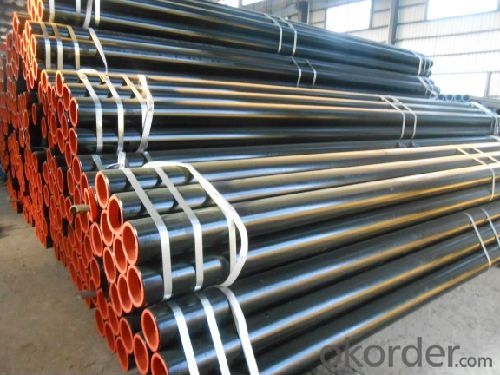
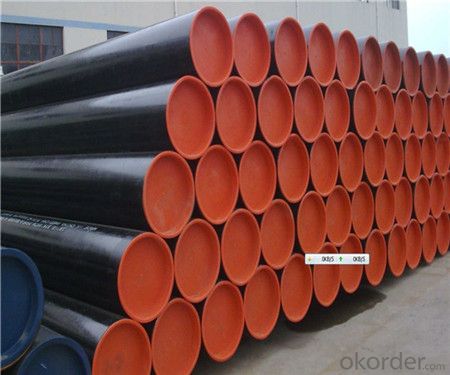
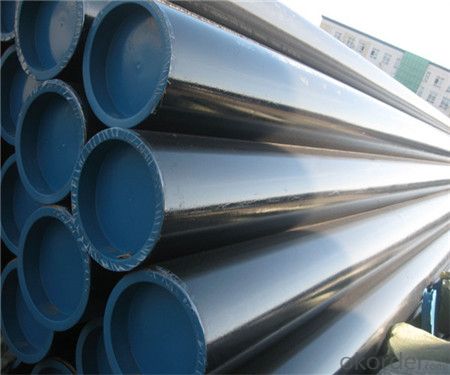
- Q: Can steel pipes be used for underground irrigation systems?
- Yes, steel pipes can be used for underground irrigation systems. Steel pipes are durable, corrosion-resistant, and can withstand high pressure, making them suitable for underground applications. However, it is important to ensure proper coating and protection against corrosion to maintain their longevity in underground environments.
- Q: What is the maximum allowable deflection for steel pipes?
- Industry standards and design codes typically determine the maximum allowable deflection for steel pipes. These regulations specify the acceptable limits of deflection to guarantee the pipes' structural integrity and functionality. The maximum allowable deflection can vary, depending on factors like pipe diameter, wall thickness, material properties, and the application type. To determine the specific maximum allowable deflection for a particular steel pipe application, it is crucial to reference relevant standards and codes such as the ASME B31.3 code for process piping or AWWA standards for water transmission and distribution pipes. Adhering to these guidelines ensures the safe and efficient operation of steel pipes in various industries and applications.
- Q: What are the thermal properties of steel pipes?
- Steel pipes have excellent thermal conductivity, meaning they can efficiently transfer heat. They also have a high melting point and can withstand high temperatures without deformation. Additionally, steel pipes have low thermal expansion, allowing them to maintain their shape and structural integrity even when exposed to extreme temperature changes.
- Q: How do steel pipes handle seismic expansion joints?
- Steel pipes handle seismic expansion joints by allowing for movement and flexibility. These pipes are designed to withstand the forces caused by seismic activity, such as earthquakes, by accommodating expansion and contraction without causing damage to the overall structure. The joints in steel pipes are often equipped with specialized components, such as bellows or flexible couplings, that can absorb the movement and prevent excessive stress on the pipeline. This ensures the integrity and safety of the pipeline system during seismic events.
- Q: How are steel pipes used in the renewable energy sector?
- Steel pipes are commonly used in the renewable energy sector for various purposes, primarily in the construction and installation of infrastructure for wind and solar energy projects. Steel pipes are used to support and anchor wind turbine towers, as well as to transport compressed air or hydraulic fluid for the operation of wind turbines. They are also utilized in the construction of solar panel frameworks, providing stability and durability. Additionally, steel pipes are used in geothermal energy projects for the extraction and transportation of hot water or steam from underground sources to power plants. Overall, steel pipes play a crucial role in enabling the efficient and reliable operation of renewable energy systems.
- Q: Can steel pipes be used for underground gas pipelines?
- Yes, steel pipes can be used for underground gas pipelines. Steel pipes are often the preferred choice for underground gas pipelines due to their strength, durability, and resistance to corrosion. They can effectively handle the high pressure and extreme temperature variations associated with transporting gas underground.
- Q: How are steel pipes used in the manufacturing of furniture?
- Steel pipes are commonly used in the manufacturing of furniture to provide structural support, such as in the construction of chair and table frames. They are also used as a base for attaching other materials, such as wood or fabric, and can be bent, shaped, and welded to create various designs and styles.
- Q: Welded and seamless steel pipe how to distinguish?
- Different price:Because the production process of seamless steel tube is more complex, so the price is more expensive than a seamed steel pipe, and pipe joints mainly adopts steel (steel) two welded, fixed price, the most widely used are.
- Q: Are steel pipes resistant to fire?
- Yes, steel pipes are generally highly resistant to fire due to their inherent fire-resistant properties.
- Q: How do you remove rust from steel pipes?
- One effective way to remove rust from steel pipes is to use a wire brush or steel wool to scrub the affected areas. You can also apply a rust dissolver or a mixture of lemon juice and salt on the rusted spots and let it sit for a few hours before scrubbing. Additionally, using a commercial rust remover or a vinegar solution can also help in removing rust from steel pipes.
Send your message to us
Line Welded Pipe for Sour service
- Loading Port:
- China Main Port
- Payment Terms:
- TT or LC
- Min Order Qty:
- 30 m.t.
- Supply Capability:
- 12000 m.t./month
OKorder Service Pledge
OKorder Financial Service
Similar products
Hot products
Hot Searches
Related keywords
